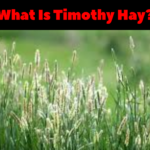Hay fever, medically called allergic rhinitis. It is an unusual situation that occurs when there is sneezing, nasal congestion, itching, and a runny nostril. It is often caused by the inhalation of allergens, substances that initiate an allergy. Although grasses, trees and other plants are typically linked to hay fever, there may be a widespread misunderstanding regarding its relationship to Timothy hay. Many people asked questions about whether Hay Fever occurs with Timothy Hay, but now here I come with all the clarification. So, Let’s Start.
Understanding Hay Fever:
Hay fever is an allergy that develops when the body’s defense system perceives harmless substances, like mold spores or pollen, as dangerous. In response, the body releases histamines and other substances, which cause the typical symptoms of allergic rhinitis. In particular, grass pollen is a well-known cause of hay fever, and people who have allergic reactions to grass may also enjoy symptoms throughout the pollen season.
Want To Read More About Agriculture?
Symptoms of Hay Fever
The symptoms of hay fever are:
- Runny nose
- Sneezing
- Itchy, watery eyes
- Congestion
- Coughing
- Postnasal drip
- Headaches
- Fatigue
Timothy Hay and Its Characteristics
It is a typical type of grass hay that is broadly recognized for its nutritional advantages and is a staple in the eating regimen of many herbivorous pets, such as rabbits and guinea pigs. It is regularly advocated by veterinarians because of its excessive fiber content material and occasional calcium and protein ranges. While this timothy is an extremely good desire for pets, the question arises: does it contribute to hay fever in humans?
Timothy Hay and Hay Fever in Humans
Despite what the general public believes, Timothy Hay is unlikely to cause hay fever in people. Trees, grasses, and other plants that are pollinated by the wind can also cause hay fever by spreading their pollen throughout the atmosphere. But instead of being pollinated by the wind, depends on a unique process. Because Timothy’s pollen is sticky and heavy, it is considerably less prone to become airborne and cause respiratory problems in people.
It’s crucial to notice that this sort of hay hypersensitivity is extremely uncommon. Allergic reactions to Timothy hay are more likely to arise in individuals with sensitivities to grasses, as this form of hay belongs to the grass’s own family (Poaceae). This isn’t usually the same as hay fever, as hay fever specifically describes a hypersensitivity brought on by inhaling airborne pollen.
Managing Hay Fever:
For those who are suffering hay fever symptoms at any time during the pollen season, there are a few essential strategies to manage and alleviate the discomfort of hay fever, which are
1. Avoidance
Minimize publicity to allergens by staying indoors during peak pollen instances, keeping home windows closed, and the use of air purifiers.
2. Medications
Over-the-counter antihistamines and nasal corticosteroids can help relieve hay fever symptoms. However, it is recommended that patients consult with a healthcare provider for proper guidance on the use of medications.
3. Allergen Immunotherapy
To desensitize the immune system to specific allergens, allergy immunotherapy also known as allergic reaction shots. In severe cases, it might be recommended.
Conclusion
The belief that hay fever occurs with Timothy’s hay is basically a false impression. This type of hay doesn’t usually induce hay fever in humans, and its dense, sticky pollen is less likely to get airborne and aggravate respiratory conditions. Although hypersensitivity reactions to Timothy hay alone are rare, sensitivity can also be enjoyed by those who have grass allergies. It is important to differentiate between hay fever caused by allergies to specific types of grass hay and hay fever caused by flowers pollinated by the wind. Now, I hope you learned how Hay Fever occurs with Timothy Hay.
FAQs
Q1: Is timothy hay beneficial for allergies?
According to WebMD, Prescription tablets that reduce the signs of seasonal allergies (hay fever) include modest portions of timothy grass pollen.
Q2: Can hay cause hay fever?
Despite its name, most people with hay fever do not actually have a fever at times. They are most adept at identifying the symptoms of hay fever, which include sore nostrils, nose, mouth, and eyes congestion, and sneezing.
Q3: Can Timothy Hay induce asthma?
If you suffer from asthma, it’s possible that Timothy’s hay allergies harm you. Coughing and wheezing are among the indications and symptoms brought on by its pollen grass.
Q4: Can people with grass pollen allergies handle Timothy’s hay safely?
People with grass pollen allergies should handle Timothy’s hay carefully, using a mask or gloves to reduce the chance of a reaction.








